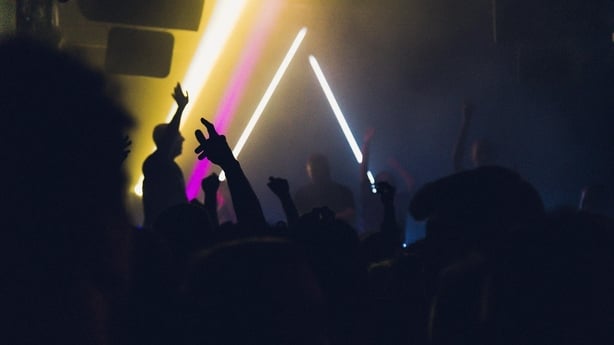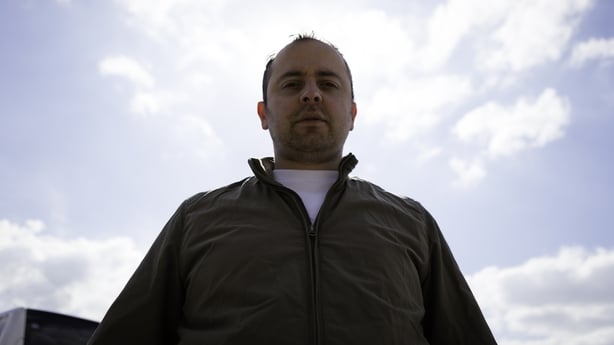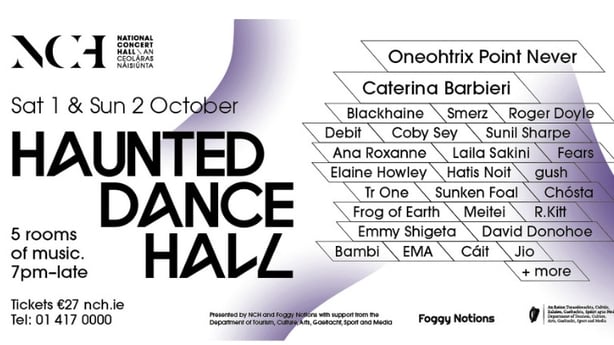Opinion: Ahead of his appearance at the forthcoming Haunted Dancehall weekender at the National Concert Hall, DJ and Give Us The Night co-founder Sunil Sharpe talks about the current challenges for the Night-Time Economy, how we in Ireland fare compared to our European neighbours and what can be done to change things for the better.
Haunted Dancehall is a two-day music event featuring artists from the adjoining worlds of electronic, contemporary classical, ambient, hauntology, noise and experimental music performed in five different rooms throughout the NCH - find out more here.
Up until the last recession, asking if we had enough spaces to dance in was not a question that arose very often in Ireland. From local discos to college social events to a range of mainstream and 'underground' dance parties, people generally had enough venues to access whatever their choice of gathering was.
From Give Us The Night’s point of view, the prospect of widespread venue closures was something that we warned against back in 2008, when damaging amendments were made to our licensing laws. We didn’t anticipate that it would get this bad though. Since those amendments were made, which included a doubling of so-called late licence costs, we’ve gone from having 328 nightclubs nationally to 85 today.

Commercial venues often close but with the business model becoming increasingly unattractive to investors, it has been the lack of new venues opening over the last decade or so that has been critical. In the old days it was common for an operator to take over a venue that had been vacated or put up for sale. Nowadays the chances of someone in the licensed trade taking over another music venue and keeping it for that main purpose, are slim. We've seen countless venues turned into cocktail bars, restaurants and generic late bars, where music is a secondary consideration. The well-publicised proliferation of hotels and office blocks too, has narrowed the access to cultural space and entertainment buildings, particularly in Dublin City.
Electronic music accounts for the highest output of recorded music coming from Ireland yet because it's not part of old tradition, and without much support historically,
A country without dance venues is culturally deficient, and this is why these venues need special support, the type of which is already afforded to particular kinds of cultural venues in Ireland. In Germany they recently lowered the VAT rate for clubs from 19% to 7%, in line with cultural institutions including galleries and opera houses. This is the type of progressive shift we should see in the forthcoming budget that would show us clearly how much the Government values this sector. Nightclubs, while run as private enterprises, offer an important public service. Dancing provides so many physical and mental benefits, and these spaces help to build and strengthen communities in the same way as any other type of social or sports club.

When we relaunched as a fully active public campaign in 2018, we widened our scope beyond just changing licensing legislation. We had identified many types of buildings and venues (including theatres, arts centres and cultural institutions) that could be used more for modern music and to meet the demands of younger audiences particularly. Electronic music accounts for the highest output of recorded music coming from Ireland yet because it's not part of old tradition, and without much support historically, it’s generally overlooked or even feared. This isn’t without precedent; the fear of new foreign music helped to create enough of a stir in the 1930s to pressure our then government to publish the infamous Public Dance Halls Act, a core piece of legislation that’s still in use (but hopefully not for much longer).

We've also observed the counter-productive approach within State bodies and local authorities when it comes to using spaces for culture. The general concept is if you keep somewhere shut or underuse it, that it won't cost any money to run and will cause little 'hassle’. This is a popular form of problem-solving, and as a result we see far too many lost opportunities in communities (communities that should be enabled to run more of these spaces themselves). Ireland has relied heavily on pubs to provide social activities, and let’s hope these businesses can still play a major part, but the greater use of publicly owned buildings has to be part of our night-time future too. More venues that showcase the intrinsic link between electronic music and the visual arts should also be a priority.
I’d like to think that we’re starting to turn a corner now. Through our work on the Night-Time Economy Taskforce we’ve got to liaise with the Arts Council, the network of cultural institutions, and a range of other programmers and officials who are committed to doing things differently than before.
Haunted Dancehall is the culmination of this fresh ambition within the Culture Department and NCH, and an event I’m very happy to have been asked to play at. Moving from the avant-garde right through to more straight-up club music, this is such an exciting experiment to be part of in our national home of music, which I’d encourage everyone to head along to!
Sunil Sharpe performs at Haunted Dancehall in the National Concert Hall on October 2nd - find out more here.
The views expressed here are those of the author and do not represent or reflect the views of RTÉ

